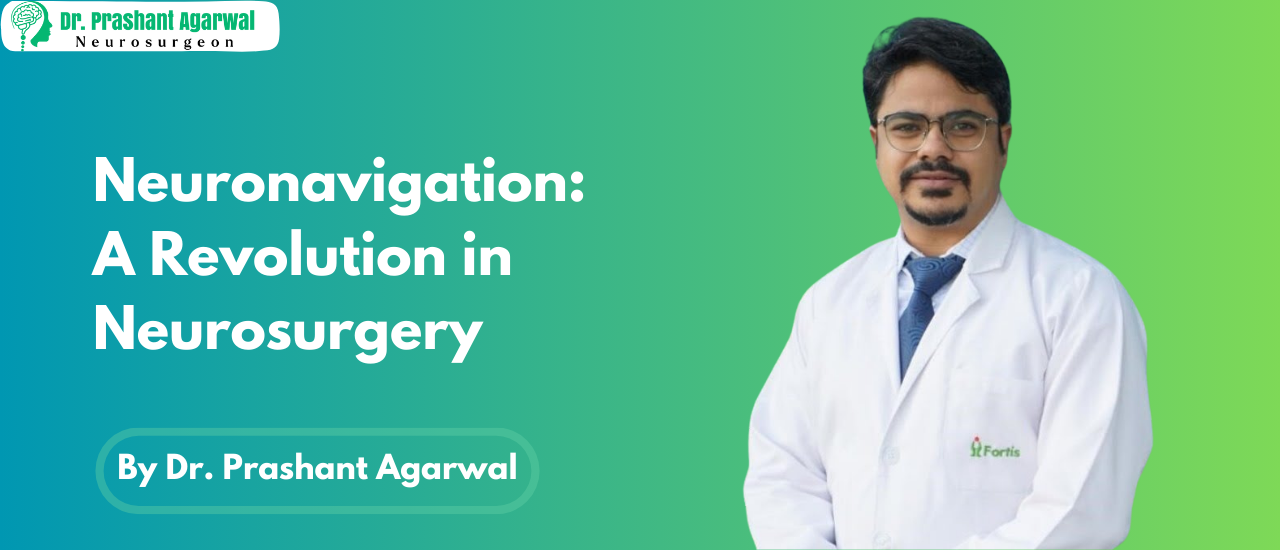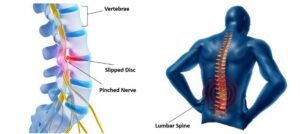Neuronavigation: A Revolution in Neurosurgery | Dr. Prashant Agarwal
The human brain is one of the most complex structures in the universe. Performing surgery on such an intricate organ requires precision, skill, and advanced technology. That’s where Neuronavigation comes in – a groundbreaking innovation that has revolutionized neurosurgical procedures.
Dr. Prashant Agarwal, a leading neurosurgeon, has been at the forefront of adopting neuronavigation to enhance the accuracy and safety of brain and spine surgeries. This cutting-edge technology has significantly improved patient outcomes by minimizing risks and improving surgical precision.
What is Neuronavigation?
Neuronavigation, often referred to as GPS for the brain, is a computer-assisted technology that guides neurosurgeons during procedures. It provides real-time, three-dimensional images of the brain or spine, allowing surgeons to navigate complex anatomical structures with unparalleled accuracy.
This technology utilizes advanced imaging techniques like MRI (Magnetic Resonance Imaging) and CT scans to create a detailed map of the patient’s brain or spine. This digital roadmap helps surgeons avoid critical structures while targeting affected areas with precision, leading to safer and more effective surgeries.
How Does Neuronavigation Work?
Neuronavigation works by integrating preoperative imaging data with real-time intraoperative feedback. Here’s how the process unfolds:
- Preoperative Imaging – Before surgery, detailed MRI or CT scans are taken to create a 3D model of the patient’s brain or spine.
- Data Processing – The imaging data is fed into specialized neuronavigation software that constructs a virtual model of the target area.
- Surgical Planning – Surgeons use this virtual map to plan the best approach, ensuring minimal invasion and maximum safety.
- Intraoperative Navigation – During surgery, special infrared cameras and tracking systems continuously update the position of surgical instruments relative to the patient’s anatomy, providing real-time feedback.
- Precision Execution – The technology guides the surgeon with pinpoint accuracy, reducing errors and enhancing the success rate of the procedure.
Why is Neuronavigation Important?
Neuronavigation has transformed the field of neurosurgery by offering numerous benefits:
✔ Enhanced Precision – It allows surgeons to operate with millimeter accuracy, reducing the chances of damaging healthy tissue. ✔ Minimally Invasive Surgery – With precise guidance, surgeons can perform smaller incisions, leading to faster recovery and reduced complications. ✔ Shorter Surgery Time – Real-time navigation improves efficiency, reducing the overall time spent in surgery. ✔ Lower Risk of Complications – By avoiding critical structures, neuronavigation minimizes risks such as excessive bleeding or nerve damage. ✔ Improved Patient Outcomes – Patients experience less post-operative pain, quicker recovery, and better overall prognosis.
Applications of Neuronavigation in Neurosurgery
Neuronavigation is widely used in various brain and spine surgeries, including:
- Brain Tumor Surgery
- Spinal Surgeries
- Epilepsy Surgery
- Deep Brain Stimulation (DBS)
- Biopsy Procedures
Dr. Prashant Agarwal’s Expertise in Neuronavigation
Don’t Ignore the Signs! | Brain Tumor Treatment | Dr Prashant Agarwal
Dr. Prashant Agarwal is a renowned neurosurgeon who has embraced neuronavigation to provide his patients with safer, more effective surgical treatments. His extensive experience and expertise in the field have enabled countless individuals to undergo complex neurosurgical procedures with confidence and success.
Dr. Agarwal emphasizes the importance of patient-centered care, ensuring that each individual receives a personalized surgical approach. He believes that technology like neuronavigation is a game-changer in neurosurgery, making previously high-risk surgeries safer and more predictable.
Conclusion
Neuronavigation is a remarkable innovation that has transformed the landscape of neurosurgery. By providing real-time, high-precision guidance, it has made complex brain and spine surgeries safer and more successful.
With experts like Dr. Prashant Agarwal leading the way, the future of neurosurgery is brighter than ever. Thanks to neuronavigation, patients can now undergo life-saving procedures with greater confidence, minimal risks, and improved outcomes.
If you or a loved one requires neurosurgical care, consulting a specialist like Dr. Prashant Agarwal can ensure you receive the most advanced and effective treatment available today!





